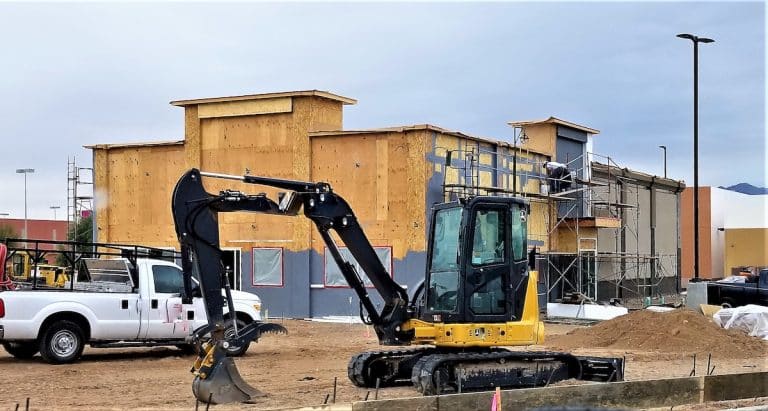
Course of Construction Insurance
4 Important Things You Need to Know Before Purchasing
Course of Construction Insurance

Whether you’re renovating your home or about to break ground on a multi-million-dollar real estate development job, construction projects are complex with many moving pieces.
And with many moving pieces, comes more opportunities for things to go wrong – fires, injury, theft, and vandalism are just a few examples of the risks you might face.
The hit to your budget or bottom line from any of these risks can be huge. The best way to create peace of mind for yourself or your company is to obtain Course of Construction (CoC) insurance.
Course of Construction insurance policies can be complex, so we’ve compiled four key things you should be aware of when searching for CoC coverage.
Course of Construction Insurance is the same thing as Builder’s Risk Insurance
Also known as Builder’s Risk Insurance, Course of Construction insurance is a type of policy that covers residential and commercial structures while they’re under construction or renovation.
Generally, Course of Construction insurance protects you from physical loss or damage to property throughout a construction or renovation project.
Typically, these types of policies cover:
- The overall project
- Temporary onsite structures
- Materials that become part of the project
- Materials transported to the construction site

Some examples of excluded risks include flooding, earthquakes, and delays in completion, unless you specifically include these risks as options in your policy. If you live in a place that experiences any of the above risks, consider purchasing additional coverage.
Course of Construction policies can be drafted in many ways
Course of Construction insurance is an “all-risk” policy that can be drafted to cover a whole structure or just part of a structure, like a new kitchen. While many people don’t think to take out an insurance policy when they remodel a kitchen or bathroom, it’s a good idea that can save you a lot of trouble (and money) if something goes wrong.
Course of Construction policies can also be written to cover a group of construction projects – how it’s written is up to you – talk to your insurance advisor for more information.
Course of Construction insurance (typically) doesn’t cover poor workmanship or construction design
Generally, Course of Construction insurance is meant to protect you or your business from accidents, not negligence or mistakes.
For example, if your construction project is damaged due to faulty workmanship, you may not be covered. Always check to see if your policy includes a faulty workmanship exclusion; if it does, you may want to investigate getting additional coverage.
Remember, Course of Construction policies often exclude things like leased equipment and legal fees and many people learn that they’re not included after there’s been a claim.

Course of Construction policies require a very close read
Insurance policies aren’t the most exciting read, and contractors often rush to get insurance in place, so that construction can start. However, it’s very important that you pay attention to the details in your policy, so you aren’t surprised later.
It’s important that you take the time to read and understand your policy, which your advisor can help you with. Your advisor is well-versed with the ins-and-outs of CoC insurance policies and will help you feel confident going into your new project by ensuring you’ve got the right amount of protection.
Learn more by speaking with one of our certified Insurance Representatves
We are here to help guide you through your insurance needs. Ap Insurance can give you expert advice on Course of Construction Insurance so you are covered for anything unexpected.
CONTACT US
